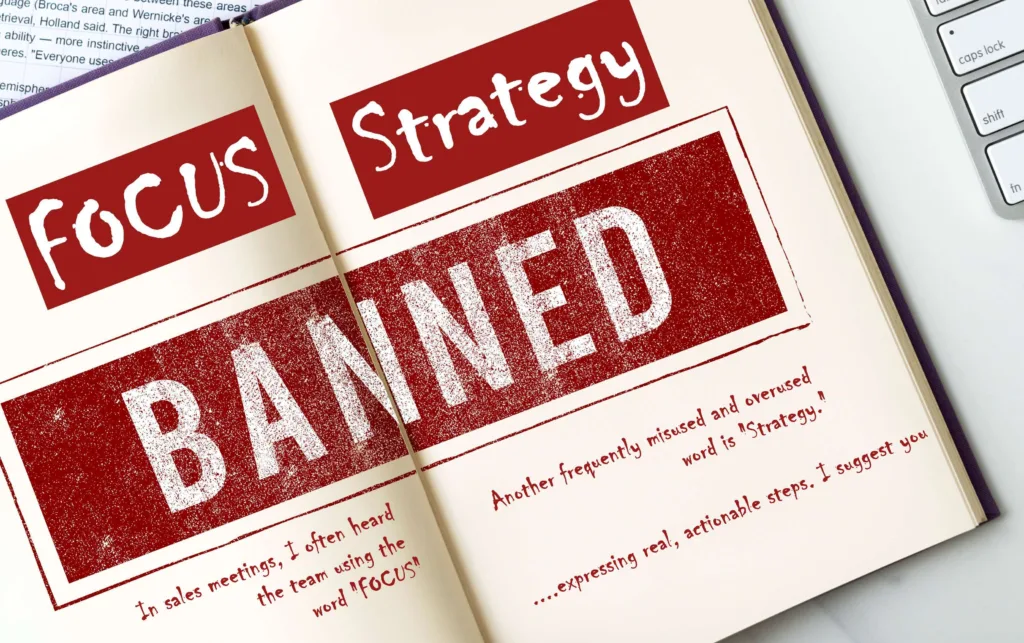
“Focus” banned!
One of my closest friends joined the Indian Air Force when I embarked on my career with a leading Indian company. I used to visit their cantonment to spend time with him and his team. It was a grand source of motivation for me. These young men, dedicated to a noble cause, led lives with a purpose beyond personal gain, which helped me to think beyond selfish personal development.
One thing I noticed during my visits was their frequent use of the word “bloody” in every sentence. If you have a close friend in the army, you might have observed this too. It perfectly matches their body language and spirit. Later, I understood that they used this word not in its literal sense but to compensate for gaps in English grammar, particularly verbs and auxiliary verbs. There’s nothing wrong with this; I was, in fact, impressed by their expressive communication.
I started this article with the above example to correlate something I experienced while leading businesses in corporates. In sales meetings, I often heard the team using the word “FOCUS” whenever discussing solutions to problems. I realized it was often used to obfuscate a lack of deep thinking and concrete solutions. For instance, when talking about how to improve sales of a product or enhance market share in a specific region, the common answer would be, “We need to focus…” The common underlying reason is they expect that “you tell me what to do,” which leads to a monologue discussion, which is not desirable.
To address this, I implemented a strategy: once anyone enters the meeting room, no one can use the word “FOCUS.” “Focus” banned.
This forced the team to think deeply about strategies and actionable steps. Simply saying “focus” can bypass critical analysis. Focus is meaningless without actionable steps.
Another frequently misused and overused word is “Strategy.” For every question, the common response is, “We must have a good strategy…” However, there is often no clear understanding of what strategies entail, their various components, or how to develop effective ones. Sometimes, a simple tactical move can be sufficient, but for some, everything is considered strategy. I’ve observed this issue among very senior employees as well, due to a lack of formal training. Not everything can be learned on the job.
Please note that this article is not meant to criticize anyone but to highlight that one should immediately be alert when these phrases are used or heard, and focus on expressing real, actionable steps. I suggest you try this approach and observe the change.
—O—
